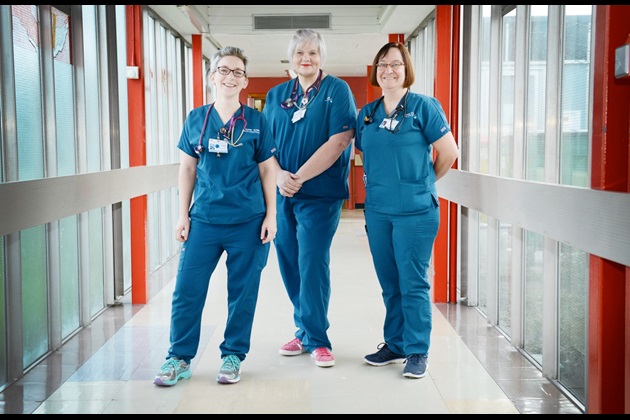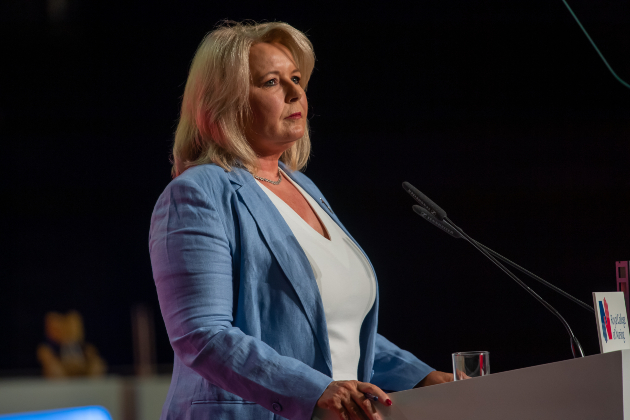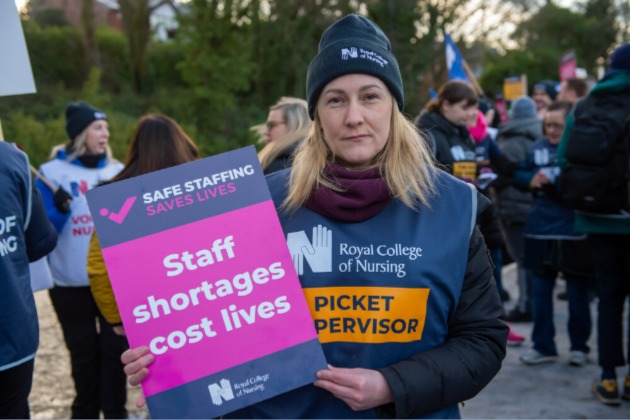Recently published research suggests almost 600 separate job titles are being used by nurses working in advanced practice roles, with no clear link between their education level, competence or experience. There’s currently no statutory standard; in fact anyone can call themselves an advanced practitioner. This is a challenge for senior nurses and hugely worrying for patients.
The RCN’s advanced level nursing practice credentialing programme sets out to address this thorny issue; potentially helping senior nurses with their career development but also providing reassurance to patients they’re receiving care from the most appropriate staff.
Teamwork
Patients being treated by the major trauma team at the Chorley and Royal Preston Hospital can now feel confident they are being treated by the best. There, the team of three RCN members, Elizabeth Midwinter, Carla Painter and Jo Bingham, are now officially recognised as advanced practitioners in their field. As they go about their work, they now sport the RCN credential badge having proved their skills and qualifications to independent assessors.
“We decided to do it as a team,” says Elizabeth. “We all come from different nursing backgrounds but we wanted to set a minimum standard for our nurse clinician roles. Going forward we’d expect any new trainees in the team to be working towards RCN credentialing and any new nurse clinicians to have the RCN credential.”
 Elizabeth Midwinter, Carla Painter and Jo Bingham
Elizabeth Midwinter, Carla Painter and Jo Bingham
There are other professional benefits for Elizabeth too. “In the future I may consider being credentialed by the Royal College of Emergency Medicine, but I’m proud to be a nurse and wanted recognition from a nursing body, and the RCN credential has the added benefit of being transferable outside emergency medicine.”
So would Elizabeth recommend the RCN credential to other senior nurses? “Absolutely,” she says. “It proves you’re working at a certain level. My only criticism is that it’s not mandatory and I fear there are people out there who don’t have the skills or qualifications necessary who still insist on calling themselves advanced practitioners.”
Career prospects
Wendy Preston, from the RCN nursing department, says being recognised as an advanced level nurse practitioner strengthens senior roles and provides assurance to patients. “This is an exciting opportunity for senior nurses and we hope it will help them develop professionally and enhance their career prospects.”
She adds: “It’s more important than ever that we acknowledge nurses working at an advanced level whose expertise and skill in their practice, leadership, education and research has been formally assessed and recognised.”
What is credentialing?
It’s the process of assessing the background and legitimacy of nurses to practice at an advanced level through assessing their qualifications, experience and competence. An RCN credential allows nurses to gain formal recognition of their level of expertise and skill in their clinical practice, leadership, education and research in a way that is recognisable to colleagues, employers, patients and the public.
Those who are successful in being awarded the credential will be included on a publicly available database of credentialed nurses, and will receive a badge and certificate.The credentialing service is now available to all nurses working at an advanced level. Find out more, including details about fees and how to register your interest.








